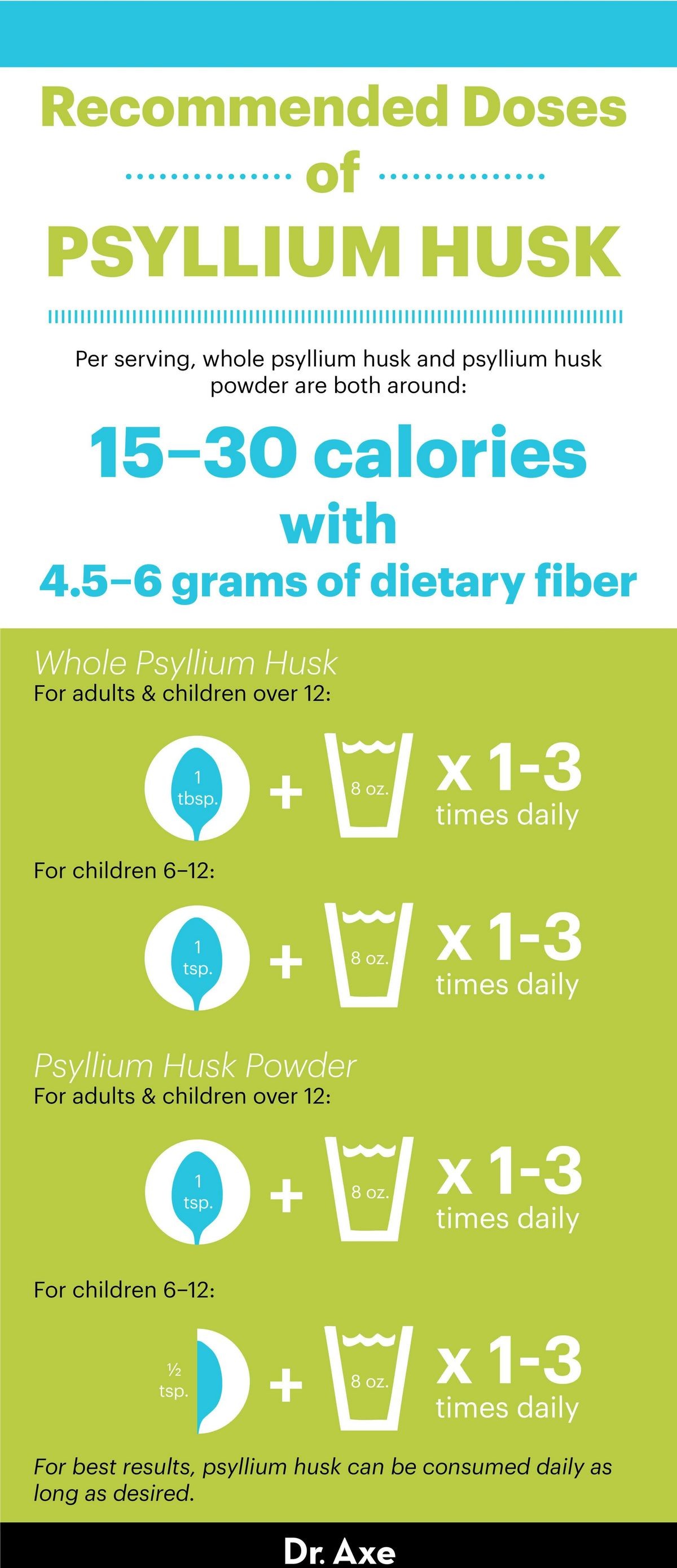
Contents
Psyllium
Psyllium is a bulk-producing laxative available over-the-counter as capsules or powders derived from the seed husks of the herb Plantago ovata. Psyllium husks are composed of insoluble fiber that absorbs water, expands, and softens stools.
Psyllium is also used as an antidiarrheal that absorbs excess water in the colon and adds bulk to stools. It is taken for weight management as it expands in the stomach, producing a feeling of fullness and reducing calorie consumption. Studies suggest it may help lower LDL cholesterol by absorbing bile acids and cholesterol in the intestines, which are then eliminated in stools.
Psyllium uses include:
- Constipation
- Diarrhea
- Fecal incontinence
- Hemorrhoids
- Ulcerative colitis
- Hyperlipidemia (high blood lipid levels)
Warnings
- Do not take psyllium if you have:
- Hypersensitivity to psyllium
- Gastrointestinal (GI) obstruction
- GI ulceration
- Swallowing difficulties (dysphagia)
- Fecal impaction
- Symptoms of appendicitis or other conditions requiring immediate surgical intervention (acute surgical abdomen)
- Rectal bleeding
Side Effects
Common side effects of psyllium include:
- Constipation
- Abdominal cramps
- Diarrhea
- Esophageal obstruction
- Intestinal obstruction
- Allergic reaction in people sensitive to inhaled or ingested psyllium
This is not a complete list of all side effects or adverse reactions.
Contact your doctor if you experience serious side effects or adverse reactions. You can also report side effects or health problems to the FDA at 1-800-FDA-1088.
QUESTION
Dosages
Amount expressed as soluble fiber
Capsule
- 400 mg (Reguloid)
Packet, Powder for Dissolution
- Konsyl: 60.3% (1 each)
- Metamucil MultiHealth Fiber Oral: 58.12% (1 each)
Bottle, Powder for Dissolution
- 30.9% (per gram)
- 60.3% (per gram)
- 71.67% (per gram)
- 52.3% (per gram)
- 28.3% (per gram)
- 48.57% (per gram)
- 58.6% (per gram)
Adult:
Constipation
Indicated for fiber supplementation, occasional constipation, or to maintain regularity
Dosage varies between products; check labeling; generally, initiate with lower dose and gradually increase according to symptoms and tolerability
- 2.5-30 g/day orally in divided doses
Reduce Risk of Coronary Heart Disease
- Soluble fiber 7 g or more (psyllium seed husk 10.2 g or more) orally per day
Dietary Fiber Supplement
Indicated for daily fiber supplement
Daily recommended intake of total fiber (Journal of the Academy of Nutrition and Dietetics 2015)
Adults 19-50 years
- Males: 38 g/day
- Females: 25 g/day
Adults 51 years or older
- Males: 30 g/day
- Females: 21 g/day
- Pregnancy: 28 g/day
- Lactation: 29 g/day
Pediatric:
Constipation
Indicated for fiber supplementation, occasional constipation, or to maintain regularity
Dosage varies between products; check labeling; generally, initiate with lower dose and gradually increase according to symptoms and tolerability
- Children 6-11 years: 1.25-15 g/day orally in divided doses
- Children 12 years and older: 2.5-30 g/day orally in divided doses
Reduce Risk of Coronary Heart Disease
Children 12 years and older
- Soluble fiber 7 g or more (psyllium seed husk 10.2 g or more) orally per day
Dietary Fiber Supplement
Indicated for daily fiber supplement
Daily recommended intake of total fiber (Journal of the Academy of Nutrition and Dietetics 2015)
Children 1-3 years
Children 4-8 years
Children 9-13 years
- Males: 31 g/day
- Females: 26 g/day
Children 14-18 years
- Males: 38 g/day
- Females: 26 g/day
Overdose
- Psyllium is a dietary fiber that retains water and expands.
- Overdose of psyllium, particularly without drinking sufficient fluids, can worsen constipation and lead to intestinal obstruction.
- If bowel movement doesn’t occur after drinking adequate water, seek medical help.
Drug Interactions
Inform your doctor of all medications you are currently taking to check for possible drug interactions. Do not begin, discontinue, or change the dosage of any medication without your doctor’s recommendation.
- Psyllium has no known severe or serious interactions with other drugs.
- Moderate interactions of psyllium include:
- metoclopramide intranasal
- sodium picosulfate
The above interactions are not all possible. For more information, use the RxList Drug Interaction Checker.
Always inform your doctor, pharmacist, or healthcare provider of all medications you use, including the dosage, and keep a list of this information. Contact your doctor or healthcare provider if you have any questions about the medication.
Pregnancy and Breastfeeding
- Psyllium is not absorbed systemically. When taken with adequate fluids, it is considered safe during pregnancy and breastfeeding, posing unlikely risks to the mother, fetus, or breastfeeding infant.
Other Information
- Take psyllium with at least 8 ounces of fluid to avoid choking.
- Take only recommended amounts of psyllium with adequate fluids to avoid gastrointestinal obstruction.
- Do not use psyllium for self-treating constipation lasting longer than 7 days. Seek medical help.
- Do not take psyllium if you have abdominal pain, nausea, or vomiting.
- If you notice sudden changes in bowel habits lasting longer than two weeks or rectal bleeding, stop taking psyllium and consult your healthcare provider.
- Check product labels for substances you may be allergic to, such as soy, or minerals like sodium, potassium, or calcium if you are on a restricted diet.
- Psyllium is marketed as a dietary supplement and is not regulated by the FDA. There may be discrepancies between labeling and actual ingredients and amounts. Choose products from reliable manufacturers.
By clicking Submit, I agree to MedicineNet’s Terms & Conditions and Privacy Policy and understand that I may opt out of subscriptions at any time.
Summary
Psyllium is a dietary fiber used to relieve occasional constipation and maintain regular bowel movements. It is also used to treat constipation, diarrhea, fecal incontinence, hemorrhoids, ulcerative colitis, and hyperlipidemia. Use psyllium with caution in elderly patients. Common side effects include constipation, abdominal cramps, diarrhea, esophageal obstruction, intestinal obstruction, and allergic reactions in sensitive individuals. Psyllium is generally safe during pregnancy and breastfeeding.
Psyllium is a dietary fiber used to relieve occasional constipation and maintain regular bowel movements. It is also used to treat constipation, diarrhea, fecal incontinence, hemorrhoids, ulcerative colitis, and hyperlipidemia. Use psyllium with caution in elderly patients. Common side effects include constipation, abdominal cramps, diarrhea, esophageal obstruction, intestinal obstruction, and allergic reactions in sensitive individuals. Psyllium is generally safe during pregnancy and breastfeeding.


